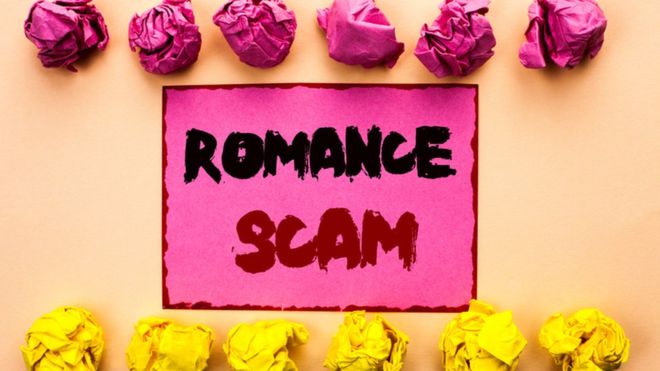
A woman in North loses £112,000 in romance scam
The woman met the fraudster online on a dating app and, as the relationship developed over the last year, the scammer convinced the woman to ‘invest’ her money in cryptocurrency. The promise was a quick profit, which never materialised.
Chair of ScamwiseNI Partnership, Police Service of Northern Ireland Superintendent Gerard Pollock, said: “While many of us have watched a recent documentary about this type of fraud, few of us will have experienced the devastating impact of falling victim of these criminals.
“Sadly, this is an example of this type of crime happening right here, right now in Northern Ireland where a real life victim has lost her life savings.
“Not only is there the stark realisation for the victim that she has been scammed, but also have to deal with and cope with the financial fallout. It’s heart breaking.”
Superintendent Pollock said: “In February this year I warned of the dangers of romance scams in the run up to Valentine’s Day, but this shows these crimes happen at any time of the year.
“It may start with a message on a social media account or an apparently misdirected text message. Fraudsters will then seek to build a relationship quickly and try to get you to chat or text away from the dating site or app you first met them on.
“To do this the criminals use some common tactics, invent stories of deceased partners, single parents working away from family.
“Soon enough they will present you with a great investment opportunity they have made money from or an emergency requiring a short term loan of money which they promise they will pay back.
“However, they do not intend to do so because they do not exist. All they wanted was your money and to get as much of it as possible.”
Superintendent Pollock says the follow steps can help protect against romance scammers.
Always keep communication on the dating website or app you’re using. Many have inbuilt security and assistance.
They also take steps to remove and ban fake accounts so you’re safer there.
Carry out your own research on the person, checking their social media presence to see if it matches what’s on the dating site.
Looking at key details such as name, location and family members can help identify inconsistencies in what you have been told.
Profile pictures can be deceiving and be taken from anywhere on the internet. You can use various websites to check photos using a reverse image search to prove if the photo is valid.
Never Ever send money to someone you haven’t met in person – If you’re looking for friendship, companionship or love online it should never start with being asked for money even to invest, and if it does it’s not a friends or relationship worth having.
“Romance scammers don’t care about your gender, sexuality, age or race. They target everyone, please don’t let it be you,” added Superintendent Pollock.
“Always remember to stay on site, using reputable dating ones. Never send money to someone you have not met or receive/transfer money on their behalf. Be alert, keep yourself safe.”
If you have been a victim of a scam, report it to police on 101, to your bank immediately, and online at www.actionfraud.police.uk or call 0300 123 2040.
Information and advice is also available at http://www.nidirect.gov.uk/scamwiseni or the ScamwiseNI Facebook page @scamwiseni
Tags:




